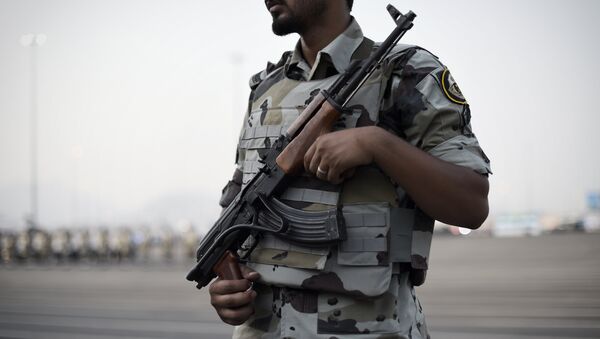Fewer than five advisers from an initial 45 will remain in the US "Joint Combined Planning Cell," created to assist Saudi forces with its military offensive in Yemen.
While US officials have denied the decision was made in light of growing concerns over civilian casualties and the humanitarian impact that the military bombardment was having in Yemen, Pentagon spokesperson Adam Stump turned his attention to Saudi practices during the conflict.
US cuts military advisors directly supporting #Saudi-led coalition in #Yemen,the #USNavy said,after concerning over civilian casualties.
— Kunwar Khalid Yunus (@KunwarKhalidYun) August 21, 2016
"Even as we assist the Saudis regarding their territorial integrity, it does not mean that we will refrain from expressing our concern about the war in Yemen and how it has been waged," he said.
"In our discussions with the Saudi-led coalition, we have pressed the need to minimize civilian casualties."
Western Complicity in Yemen
The decision to scale back American cooperation comes amid ongoing criticism of the continued US and UK support of the Saudi government's airstrike campaign.
Aid agencies estimate that 6,500 people have been killed during the 17-month long conflict, while there are also concerns about the long-term humanitarian affects, with 3 million Yemenis fleeing their homes and an estimated 80 percent of the population in need of aid.
@TAlkabili the US still has same level of full support for Saudi war they say, just moved some advisors, still arms deals, refueling jets
— Jane Novak (@JNovak_Yemen) August 20, 2016
Many critics in the West have accused Washington and London of complicity in the death and injury toll due to their continued sale of arms, political and logistical support to Riyadh, which has led to a backlash on both sides of the Atlantic.
US Senators Rand Paul and Chris Murphy have hinted they will work to block Washington's possible sale of $US1.5 billion worth of weapons to the Gulf kingdom amid human rights and humanitarian concerns.
Today @RandPaul and I introduced and amendment to the #NDAA to set conditions on US arms sales to #SaudiArabia
— Chris Murphy (@ChrisMurphyCT) May 26, 2016
"I will work with a bipartisan coalition to explore forcing a vote on blocking this sale," he said a statement to Foreign Policy magazine earlier this month.
Legal Challenge to Arms Sales
Meanwhile in the UK, the British government is also facing a backlash over its continued support for Saudi Arabia, with the UK High Court to hear a case brought forward by the Campaign Against Arms Trade (CAAT), who have called for London to halt all arms sales to Saudi Arabia amid concerns over breaches in international law.
SUCCESS! Judicial review of Saudi arms sales granted! #StopArmingSaudi https://t.co/bQMmVi9Jj2 pic.twitter.com/O7aOAOyEsV
— CAAT (@CAATuk) June 30, 2016
The opposition Labour party, under Jeremy Corbyn, has taken a much harder line on the Conservative government for their close relations with the Saudis, with calls for London to publicly criticize Riyadh over its execution rate and military campaign in Yemen.
The political and grassroots pressure to scale back relations with the Gulf kingdom also led Britain to ditch a multimillion dollar bid to provide a training program for the Saudi prisons system last year, sparking a brief diplomatic crisis with Riyadh.


